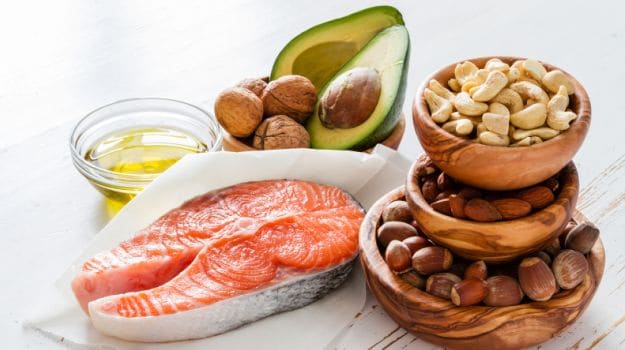Low Carb Versus Low Fat: Should You Follow These Diets For Weight Loss?
 For the past several decades, most people believed that a low fat diet was good for weight loss, largely because of its beneficial effect on metabolic risk factors such as high blood pressure, high blood sugar and obesity. In recent years, however, a growing body of research has pointed us in another direction, suggesting that a low carb diet could also help in weight reduction. Both types of diets, however, have their pros and cons so we need to look objectively at both to gain an educated, unbiased understanding.What is a Low Carb Diet?
For the past several decades, most people believed that a low fat diet was good for weight loss, largely because of its beneficial effect on metabolic risk factors such as high blood pressure, high blood sugar and obesity. In recent years, however, a growing body of research has pointed us in another direction, suggesting that a low carb diet could also help in weight reduction. Both types of diets, however, have their pros and cons so we need to look objectively at both to gain an educated, unbiased understanding.What is a Low Carb Diet?
A low carb diet refers to a daily intake of less than 225 grams of carbohydrates as part of an average diet of 2,000 calories per day.
Pros of a Low Carb Diet:
1. Carbohydrates are a good source of energy. On a low carb diet, a person is more likely to increase intake of proteins, vitamins, minerals and dietary fiber, all of which contribute to faster tissue regeneration and muscle building.
2. A low carb diet translates to reduced sugar intake, thereby reducing the risk of lifestyle diseases such as diabetes.
Cons of a Low Carb Diet:
1. Since carbohydrates are the primary fuel that the muscles and brain use for energy, a low carb diet can cause muscle weakness, confusion, dizziness, tiredness and dehydration.
2. Constipation is common in people on a low carb diet. This is because carbs are a good source of fiber that helps maintain regular bowel function.

What is a Low Fat Diet?
A low fat diet refers to a daily intake of less than 67 grams of fat as part of an average diet of 2,000 calories per day.
Pros of a Low Fat Diet:
1. A reduction in dietary fat reduces the risk of serious life-threatening diseases such as atherosclerosis, breast cancer and diabetes.
2. A low fat diet helps reduce obesity and limit weight gain.
3. People on a low fat diet tend to get more varied nutrients through their food. Studies show that those who eat three or more low fat food items, daily consume more vitamin A, beta carotene, folate, calcium and iron than those who are not on a low fat diet.
Cons of a Low Fat Diet:
1. Vitamins A, D, E and K are fat-soluble, which means a low-fat diet considerably reduces their absorption. This increases the risk of suffering from their associated deficiencies, affecting the health of your eyes, skin, bones and cardiovascular system.
2. The many low fat food options available in the market tend to be highly processed and often high in sugar and additives.
3. A low fat diet may limit the benefits of healthy fat obtained from plant and fish sources.

Which Diet to Follow?
Ultimately, the best diet is one that you can stick to over a long term with the optimum number of daily calories for your energy requirements (and that includes all the nutrients that your body needs from nutrient-dense sources). Examples of healthy carbohydrates are fruits, vegetables, legumes and whole grains. These good carbs provide the body with nutrients and fiber, and do not cause adverse spikes in blood sugar levels.
Similarly, to ensure that your diet contains healthy fats, choose monounsaturated and polyunsaturated over saturated fats as they help maintain healthy cholesterol levels. Foods rich in these healthy fats include nuts, seeds and oily fish (such as tuna and salmon). The right choice of cooking oil also makes a difference. Canola oil for example, is a good source of vitamin E, high on MUFA, low on saturated fat content (lower than any other common cooking or salad oil) and promotes heart health.
Maintaining the right body weight at all times is very important too. The best way to do so is through the adoption of a healthy lifestyle that includes a balanced diet, regular exercise and minimising stress. With these measures in place, optimum health is sure to follow.
